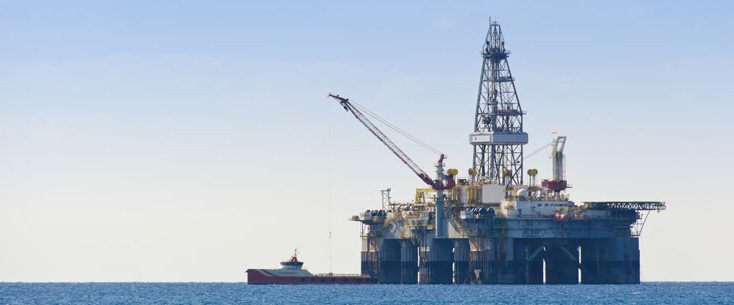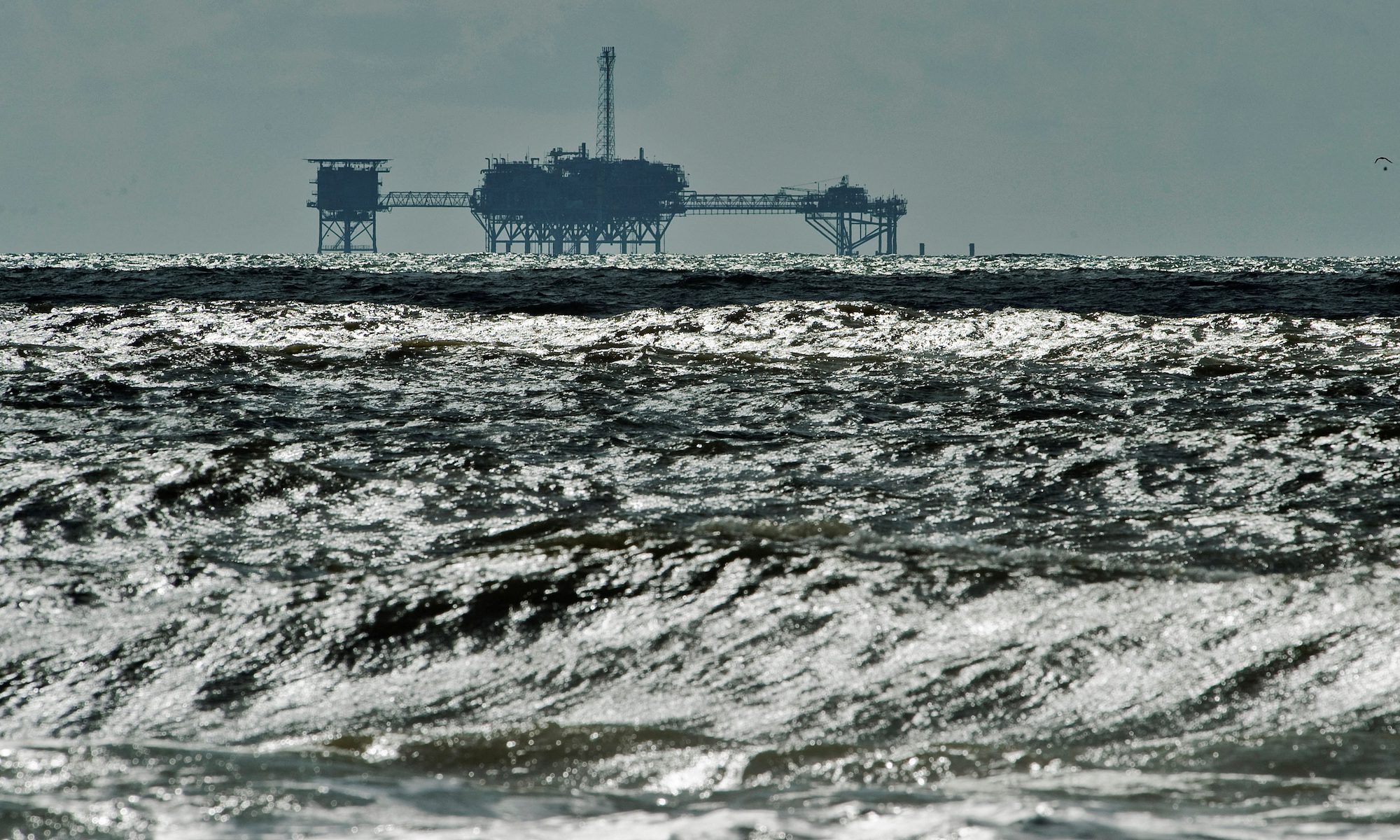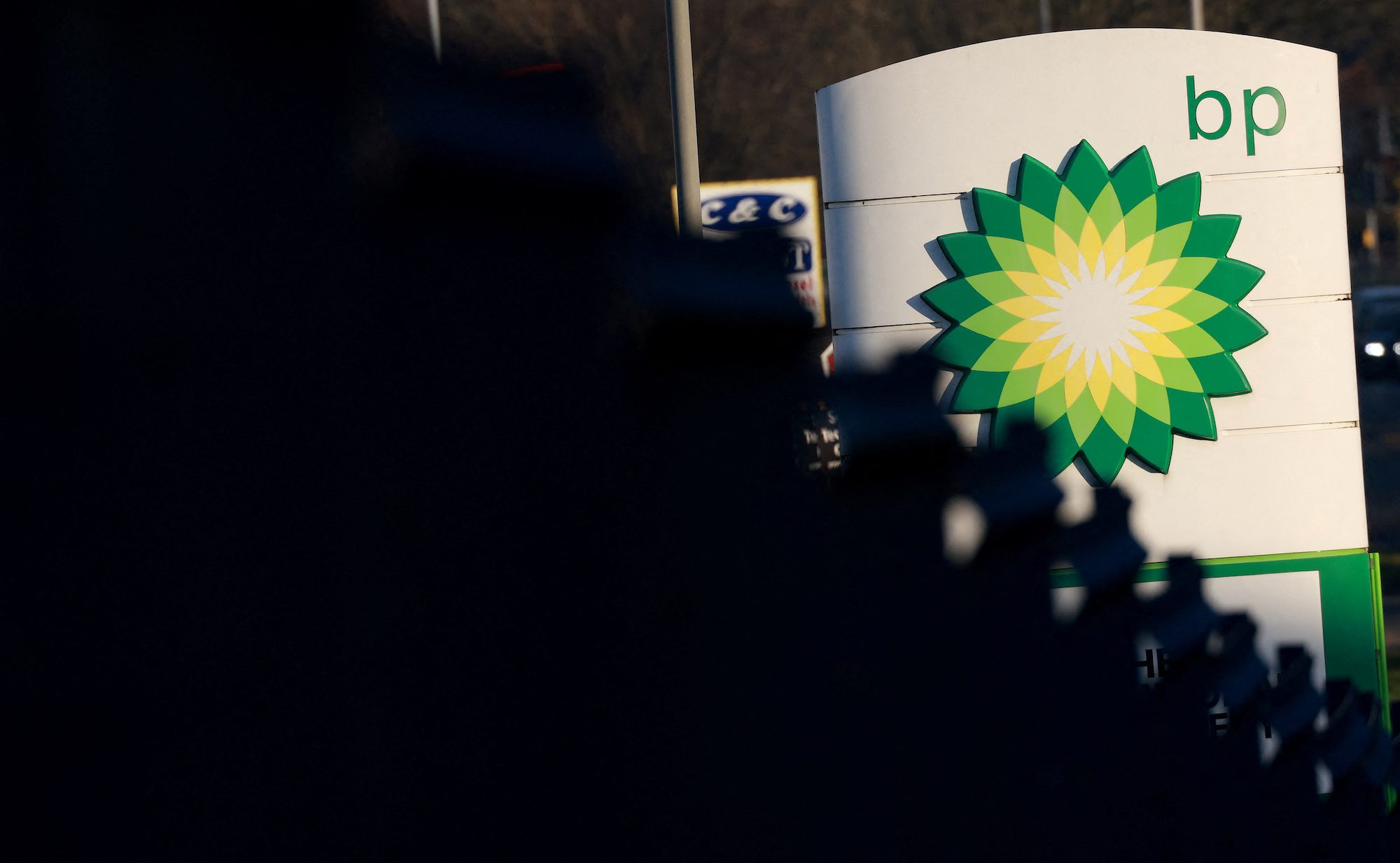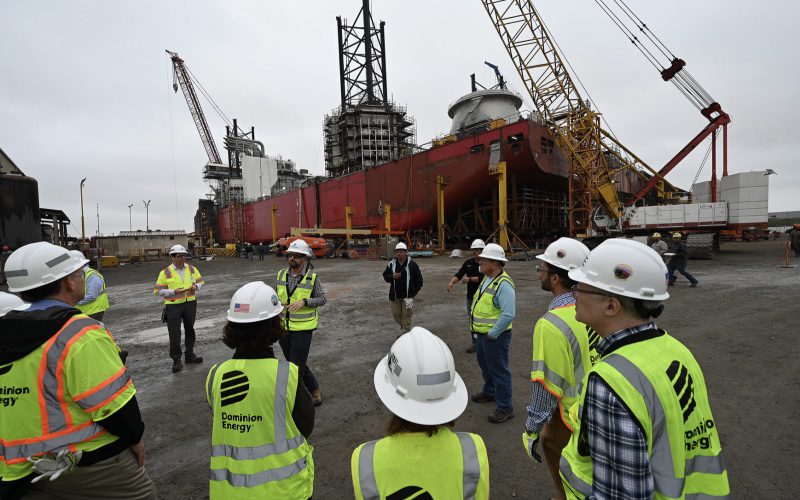Gulf Of Mexico Oil Rig And Workboat. Photo via BSEE.gov
(Bloomberg) The Obama administration has issued this year the most deep-water oil-drilling permits for the Gulf of Mexico since 2007 as high crude prices revive exploration slowed by the 2010 BP Oil spill.
The pace of issuing permits under President Barack Obama drew criticism from his Republican rival Mitt Romney last night and from energy lobbyists during the campaign who say the policies slowed oil and gas production on federal land. Obama had suspended drilling after BP’s Macondo well exploded 40 miles off Louisiana’s coast, killing 11 workers and sending an estimated 4.9 million barrels of oil into the Gulf.
“We’re just now seeing the permitting return to pre- Macondo levels,” said Andy Lipow, president of the Houston- based consulting firm Lipow Oil Associates LLC. “With oil priceshovering around $90 to $100 a barrel, it makes sense to look for oil in that area.”
Environmental groups including Washington-based Oceana say regulations aren’t sufficient to prevent another disaster and have asked the administration to stop further leasing in the Gulf, the largest source of domestic oil in the U.S.
Exxon Mobil Corp. (XOM), Royal Dutch Shell Plc (RDSA) and BP are among companies exploring for oil in mile-deep waters in the Gulf. The producers are using equipment that meets the tougher safety standards adopted after the BP spill.
The U.S. Bureau of Safety and Environmental Enforcement, which regulates offshore drilling, has as of yesterday issued 89 permits this year for new wells in waters deeper than 500 feet (152 meters). The U.S. issued 76 for all of 2009, 32 in 2010 and 38 last year, according to the agency’s website. In 2007, 106 were issued.
Tougher Standards
“Even if they’re up, there are not up as much as they would have been if it weren’t for the policies that this administration has in place ,” John Felmy, chief economist at the Washington-based American Petroleum Institute, said in a phone interview. “We would like to see even more.”
The group has promoted pro-development policies through radio and television ads in its Vote4Energy campaign.
While total output increased under Obama, API and Republicans including Romney have said administration policies hinder growth. Production on federal lands triggered a tense exchange during last night’s presidential debate as Romney said Obama cut permits in half. Obama said “it’s not true” that permits are down. Instead, oil production is at the highest level in 16 years and natural gas output is “the highest it’s been in decades,” Obama said. Total permits were down 37 percent in 2011 compared with the final year of the Bush administration.
‘Accident Waiting’
“We think the reopening of the Gulf, especially with regard to deep-water drilling, is an accident waiting to happen,” Jacqueline Savitz, deputy vice president for U.S. campaigns at Oceana, said in a phone interview. “What we’ve been asking the government is: don’t sell more leases.”
The Bureau of Safety and Environmental Enforcement in a statement said every permit application is examined and approved when an applicant has fully complied with “rigorous safety and environmental requirements” and shown the ability to contain a subsea spill.
BP, the largest holder of leases in the Gulf’s deep waters, joined the energy industry in developing systems in response to the spill that would cap a runaway well and collect oil. The Obama administration added standards on well design.
Oil Sheen
The U.S. Coast Guard determined last week that a sheen BP reported last month near the Macondo blowout site matches samples from the 2010 spill. Brett Clanton, a BP spokesman, said in an Oct. 11 e-mail that the oil most likely came from the bent pipe that once connected the Deepwater Horizon rig to the well head about 5,000 feet underwater.
API is urging the administration to open additional areas to drilling and says the Gulf would be even busier if the Obama administration didn’t slow down issuing the permits.
“We have seen numerous examples of regulatory decisions that simply move in the wrong direction,” Erik Milito, the director of upstream for the petroleum institute, told reporters last month.
The deep water Gulf “is very important for the U.S.’s energy security,” London-based GlobalData Ltd. said in a report issued this month. The company, which provides analysis and research, expects oil production in the Gulf of Mexico waters deeper than 1,000 feet to increase at an average annual rate of 2.2 percent through 2020.
Crude oil for November delivery rose 24 cents to $92.09 a barrel on the New York Mercantile Exchange yesterday. The commodity is down 37 percent from $145.29 reached in July 2008.
By Kasia Klimasinska, ©2012 BLOOMBERG
Unlock Exclusive Insights Today!
Join the gCaptain Club for curated content, insider opinions, and vibrant community discussions.

 Join The Club
Join The Club













